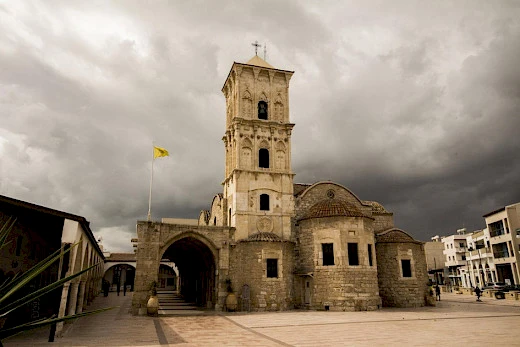“The Cretan mafia tried to acquire the relics of Saint Lazarus from Cyprus for income and influence in church appointments,” —

Greek law enforcement investigation into the so-called “Cretan mafia” revealed a “Cypriot trace”: case materials record conversations about obtaining the relics of Saint Lazarus, allegedly brought from Cyprus, and using them in religious processions “with substantial financial gain.” At the same time, discussions included lobbying for the election of a bishop in the Metropolis of Kydonia and Apokoronas in Crete.
According to publications with excerpts from the dossier, one of the alleged leaders of the group requested a “part of the relics of Saint Lazarus” as “payment” for mediating in the episcopal elections. The archimandrite mentioned in the materials assured interlocutors that the relics were “authentic,” and said he “brought them from Cyprus,” referring to “an abbot in Cyprus” who had “many” of them.
In response to these publications, Metropolitan Nektarios of Kition publicly denied any transfer of relics: according to him, the relics of Saint Lazarus “are kept sealed in the shrine and have never been handed over to anyone,” and since he took over the diocese no relics have been given to “third parties.”
The broader context of the case indicates that it involves an extensive network connected to extortion, drug and arms trafficking, raiding church property, and money laundering; the investigation has compiled a dossier of ~1,500 pages, with several suspects in custody.
Archimandrite Melchizedek Ampelikakis, whose name appears in the publications, issued a denial: he stated that he “did not request anyone’s mediation,” “did not receive political or other assistance,” and that he is being “unjustifiably implicated” in the case.
For reference: the relics of Saint Lazarus are traditionally associated with the Church of Saint Lazarus in Larnaca; their preservation in the church and the adjacent museum is confirmed by official Cypriot directories. This is why any reports of possible illegal circulation of the relics provoke resonance and strong denials from the Church of Cyprus.
The investigation in Greece continues; charges have not been considered by a court, and the presumption of innocence applies. We will follow whether the investigation produces documentary evidence of a “Cypriot trace” — the origin and possible transfer of the relics.
You may also be interested in:
- In Paphos, a 23-year-old motorcyclist was killed in a road accident; the car driver has been detained
- A scandal has erupted in Cyprus over a collage featuring works by artist Giorgos Gavriil
- Cyprus and the UAE create a joint business project
- Two 18-year-old tourists rescued in the mountains near Lagoudera
- A Christmas village has opened in the gardens of the Presidential Palace in Nicosia


